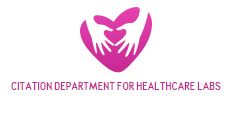The novel coronavirus, formally often called COVID-19, was first reported in Wuhan, China in December of 2019. Since that point, medical providers in Saudi Arabia have tailored to the state of affairs by delivering medical care by way of virtual clinics. Therefore, the current examine aimed to evaluate sufferers’ stage of satisfaction with virtual clinics during the COVID-19 pandemic in Saudi Arabia. This cross-sectional examine was carried out amongst sufferers who had skilled virtual clinics in primary healthcare facilities in Riyadh, Saudi Arabia.
An on-line validated questionnaire was despatched to all members who had at the very least one virtual go to between March 2020 to July 2020. The information sought included demographics, stage of satisfaction and questions associated to their expertise with virtual clinics. Computed frequencies and percentages for categorical variables, and median, imply, and commonplace deviation for steady variables. Satisfaction scores have been in contrast between teams utilizing Mann-Whitney U check and Kruskal Wallis check. Disasters can have catastrophic impacts on society and are broadly labeled into pure occasions, man-made incidents, or a mix of each.
A complete of 439 sufferers accomplished the questionnaire (response fee 97.5%); 54% have been male. The members have been divided into three age teams: 18-39, 40-59, and ≥60 years. Overall stage of sufferers’ satisfaction with virtual clinic was 68.1%. Factors statistically considerably related with satisfaction included gender, age group and stage of training (post-graduate and center faculty) and being well-informed on the usage of telemedicine. Specific age teams that have been important have been 18-39 and 40-59 years; 50.2% of the males discovered telemedicine very handy, in comparison with solely 36.1% females.
Family drugs clinics have been essentially the most generally visited virtual clinics, whereas obstetrics and gynecology clinics have been the least attended virtual clinics. The lack of ability to satisfy the health-care skilled face-to-face was reported by 53.8% as a very powerful drawback. This examine exhibits a excessive stage of satisfaction with virtual clinics in Saudi Arabia during the COVID-19 pandemic regardless of the service being comparatively new in healthcare service in the nation. Our examine demonstrated that satisfaction was linked to age, gender, training and the kind of clinic used.
An Evidence-based Approach towards a Sustainable Healthcare System
Japan is essentially the most quickly growing older nation in the world, and the sustainability of its well being and social care system is a prime precedence. In order to have a sustainable healthcare system, international safety of healthcare commons by means of laws, collectively with a market mechanism based mostly on societal values, is essential. An evidence-based method is required to achieve that; nevertheless, the present methodologies for this method have main limitations, resembling the shortage of widespread healthcare targets, the retrospective nature of proof, and the uncertainty and ambiguity of the accessible information.
This opinion paper discusses the challenges in creating a sustainable system and proposes a possible option to overcome the restrictions. Myron Gittell’s 2009 ebook, Woodstock ’69: Three Days of Peace, Music, and Medical Care, is a compelling treatise referencing well being care at Woodstock. Gittell’s work partially informs this text in regards to the iconic 1969 Woodstock Music Festival. About 400,000 individuals attended the live performance, although organizers had initially deliberate for under 50,000. Helicopter surveillance previous the pageant revealed that hundreds of spectators had already arrived.
Directors realized they’d the potential for one of many “biggest human tragedies in trendy occasions” and marshaled native authorities, well being care suppliers, native townspeople, the US Army, and an eccentric outfit from New Mexico often called the Hog Farmers, whose extraordinary efforts averted public well being catastrophe. Drug overdoses offered issues however humane administration by the Hog Farmers was exquisitely profitable. Two deaths occurred and 3000 first help visits have been recorded.
One charming side of Woodstock was a movie interview with the gentleman who cleaned the transportable bogs. This 3-minute dialogue portrayed, unexpectedly and in uncommon trend, Woodstock’s sociological complexities. The launch, in 2018, of yet one more high-profile movie depicting Woodstock, and the bountiful journalistic efforts that ensued in the summer time of 2019 reminiscing upon Woodstock’s 50th anniversary, remind us of society’s abiding fascination with this occasion.

Delivering High-Quality, Equitable Care in India: An Ethically-Resilient Framework for Healthcare Innovation After COVID-19
Developing nations battle to supply high-quality, equitable care to all. Challenges of useful resource allocation ceaselessly result in moral issues of healthcare inequity. To sort out this, such creating nations regularly must implement healthcare innovation, coupled with capability constructing to make sure new methods proceed to be developed and executed. The COVID-19 pandemic has made important calls for of healthcare programs throughout the world-to present equitable healthcare to all, to make sure public well being rules are adopted, to search out novel options for beforehand unencountered healthcare challenges, and to quickly develop new therapeutics and vaccines for COVID-19.
Countries worldwide have struggled to perform these calls for, particularly the latter two, contemplating that few nations had long-standing programs in place to make sure processes for innovation have been on-going earlier than the pandemic struck. The disaster represents a essential juncture to plan for a future. This future wants to include a imaginative and prescient for the implementation of healthcare innovation, coupled with capability constructing to make sure new methods proceed to be developed and executed.
[Linking template=”default” type=”products” search=”Angiotensin II Control peptide sequence # 2″ header=”3″ limit=”135″ start=”2″ showCatalogNumber=”true” showSize=”true” showSupplier=”true” showPrice=”true” showDescription=”true” showAdditionalInformation=”true” showImage=”true” showSchemaMarkup=”true” imageWidth=”” imageHeight=””]
In this paper, the case of the large Indian healthcare system is utilized to explain the way it may implement this imaginative and prescient. An inclusive, ethically-resilient framework has been broadly laid out for healthcare innovation in the longer term, thereby guaranteeing success in each the short- and the long-term. The PHCPs working in rural and distant communities face further challenges when dealing with disasters and have important roles during the Prevention, Preparedness, Response, and Recovery (PPRR) phases of catastrophe administration.


